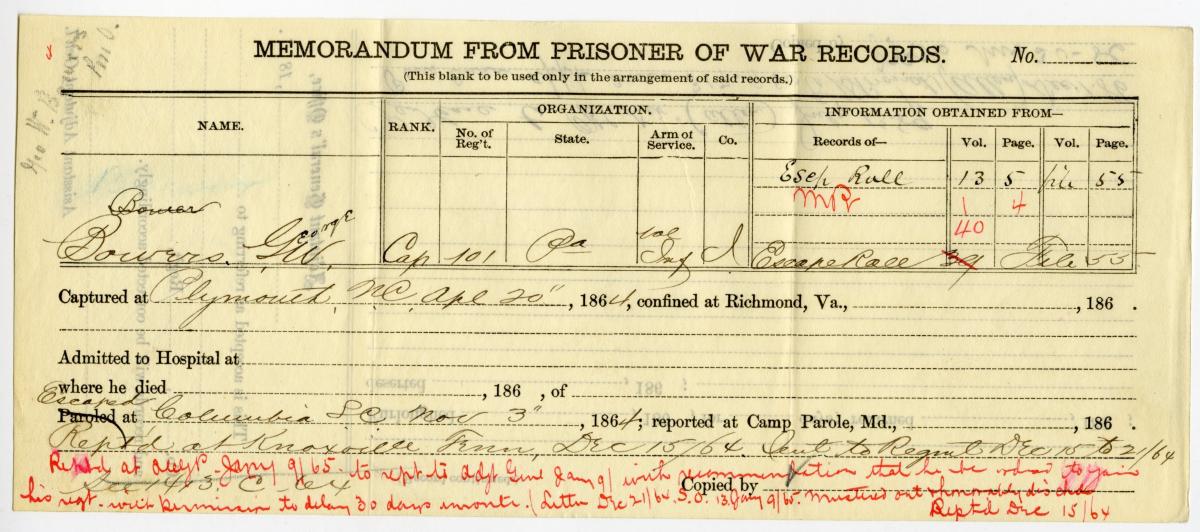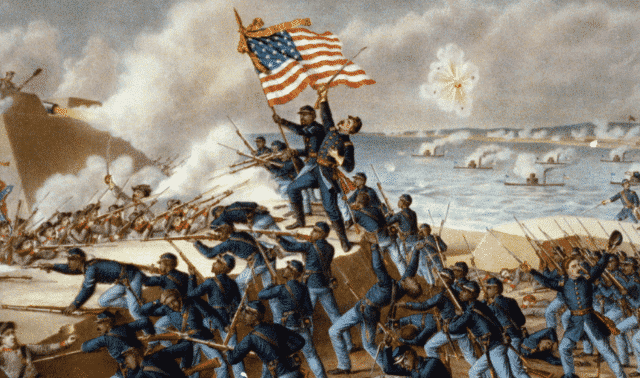Q. I am researching a man in Wilson County, Tenn. His name is James C. McIntyre, and he was a Confederate soldier in the Civil War. I also found James C. Mclntyre in the Mexican War. I don’t know if they are one and the same. I thought I would try to find a Mexican War pension application. My question is this: Since he was a Confederate veteran, was he still eligible for this pension? I know Confederate veterans were denied the right to vote and other rights due to their service in the Southern army.
A. First, I did not find a James C. McIntyre/McIntire from Tennessee in the microfilm card index to Mexican War pensions (the cards are also digitized and searchable online at FamilySearch.org). You can look at these entries for potential relatives and look under other spelling variations.
Second, some Confederate veterans did get Mexican War pensions, which Congress authorized in January 1887. If a Confederate veteran met other qualifications for a pension, he could apply if he didn’t acquire his disability during his Confederate service and if he wasn’t “under the political disabilities imposed by the 14th Amendment.” Section 3 of the 14th Amendment denied the right to hold federal or state civil or military office to anyone who had previously held office and in that capacity had sworn to uphold the Constitution, and then engaged in rebellion against the same or gave aid and comfort to those in rebellion.
Third, were the two James C. McIntyres the same person? Sometimes published county and family histories furnish clues, but those sources should not substitute for records that were contemporary with the men’s lives, including any documents showing their actual signatures. Study each man (as if they were two same-named men) in local, county, state and federal records in the context of his known military unit(s) and residence(s). Also study his “cluster” of children, spouse(s), other relatives and neighbors. Thorough research and careful evaluation should help you make a determination.
Get advice for researching your ancestor’s service in the Mexican War or 9 other lesser-known conflicts in our digital download, available in Family Tree Shop.
The May 2011 Family Tree Magazine shares the 10 top online destinations for discovering your family’s Civil War genealogy and history.




